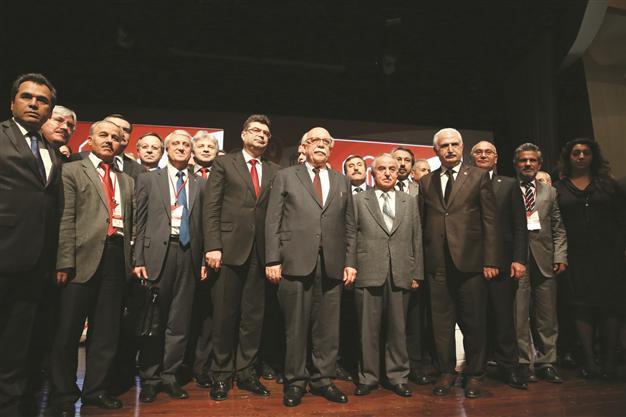Turkey’s education council ends, but debate lingers on
Gamze Kolcu ANTALYA

‘The decisions taken by the council cast light onto the projects that we were planning to realize or were already working on,’ says Education Minister Avcı, adding that the proposal regarding tourism classes came from concerns about whether high school students would start consuming alcoholic beverages. AA Photo
Turkey’s National Education Council committees have completed their annual meetings, after taking a number of headline-grabbing decisions that could shape the future of the country’s education system.
Some of the most controversial decisions include:
- “Values education” will be introduced to pre-school education institutions and compulsory religion classes will be introduced in the first three years of primary school. Religion classes are already compulsory from fourth grade.
- The period of compulsory religion classes will be increased from one to two hours per week in high schools.
- Ottoman language classes will be compulsory for imam-hatip religious vocational high schools and elective for other high schools.
- Classes teaching tourism students how to serve alcoholic beverages will be abolished. These students will also not be able to intern at tourism facilities where alcoholic beverages are served.
- Weekly class periods will decreased to 30 hours. Twenty-five of these hours will be made up of compulsory courses while five hours will be made up of elective courses.
No change in mixed-sex educationMeanwhile, a proposal on introducing compulsory religion courses to kindergartens was rejected, as well as a proposal to put an end to mixed–sex education across Turkey. The committee’s decisions were voted on at the end of the council meeting and will be delivered to the Education Ministry as recommendations. Education Minister Nabi Avcı praised the council’s decisions, saying it had taken decisions that his ministry was already planning to implement.
“The decisions taken by the council cast light onto the projects that we were planning to realize or already working on,” said Avcı, adding that the proposal regarding tourism classes came from concerns about whether high school students would start consuming alcoholic beverages after class.
However, speaking on Dec. 6, main opposition Republican People’s Party (CHP) leader Kemal Kılıçdaroğlu harshly criticized the council’s decisions.
“This is not the National Education Council; it should be called the non-national council. This council is not concerned with the future of Turkey. It limits scientific publishing, it prevents youth from learning science courses, and it takes the society backwards. I believe many of this council’s decisions will not be realized. We must work together to increase the quality of education in Turkey,” Kılıçdaroğlu said.
“Some are trying to put Turkey on a different path in education. They want to make Turkey into a medieval country. But they will never succeed in this,” he added, claiming that the council’s decisions attempted to stop raising children “who question the world.”
‘Ignorant of history’Prime Minister Ahmet Davutoğlu later criticized the CHP head’s statements. Recalling Kılıçdaroğlu’s remarks on Ottoman language classes in high schools as “an attempt to make Turkey into a medieval country,” Davutoğlu said this showed that “they are ignorant of history.”
“These gravestones [written in the Ottoman language] are the seals of these lands. The CHP still cannot understand our history,” he said on Dec. 7, speaking at a rally in the southeastern province of Van.
Eğitim-Bir-Sen, an education sector trade union with conservative views, had put forward the controversial proposal for tourism high schools.
